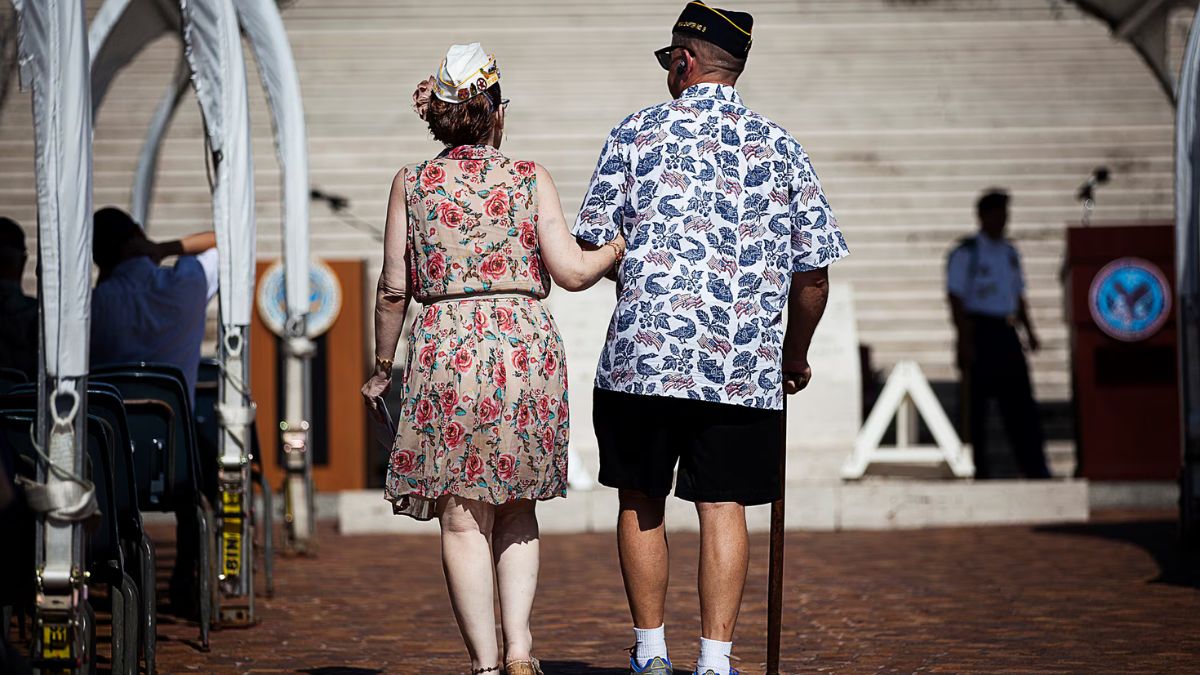In a significant policy update, the U.S. Department of Veterans Affairs (VA) has confirmed its plan to extend eligibility for the PCAFC to “legacy” participants and applicants until September 30, 2028. The extension will ensure that an estimated 15,000 families continue to receive uninterrupted benefits as the department finalizes broader program reforms.
Extension Aims to Maintain Stability During Program Reforms
The Program of Comprehensive Assistance for Family Caregivers (PCAFC) is one of the most vital support initiatives for families of U.S. Veterans. Introduced to ensure that caregivers of injured service members receive financial and emotional backing, PCAFC has been central to sustaining the well-being of both Veterans and their families.
In recent years, the VA undertook significant reforms to modernize eligibility requirements and expand access. However, these updates also raised concerns among existing members—especially those enrolled before October 2020—who feared they could lose access due to shifting eligibility rules.
By extending legacy eligibility until 2028, the VA is sending a strong message: no family currently depending on the program will face sudden loss of support during the transition. This move buys time for the department to refine policies while safeguarding continuity of care.
Understanding Legacy Eligibility Categories
To fully grasp the impact of this extension, it’s important to understand how the VA defines “legacy” groups.
- Legacy Participants: These are Veterans, service members, and their caregivers who were officially enrolled in PCAFC as of September 30, 2020.
- Legacy Applicants: These include those who applied for the program before October 1, 2020, but received approval after that cutoff date.
Both categories represent long-standing members who have shaped PCAFC through their participation and feedback. Recognizing their contributions, the VA has now assured these families that they will not be forced into re-evaluation or discharged until at least the end of fiscal year 2028.
What PCAFC Offers to Eligible Families
The PCAFC provides a wide array of benefits that go beyond financial assistance. It is designed to reduce the burden on families by offering both monetary and practical support.
Core Benefits Include:
| Benefit | Details |
|---|---|
| Monthly Stipend | Caregivers receive financial assistance tied to the level of care required by the Veteran. |
| CHAMPVA Health Insurance | Access to healthcare coverage for caregivers who do not have other insurance options. |
| Caregiver Education | Training programs to help family members manage medical and psychological needs of Veterans. |
| Respite Care | Short-term substitute care services, giving caregivers time to rest. |
| Mental Health Support | Counseling, peer support groups, and other emotional health resources. |
| Travel Reimbursements | Financial aid to cover travel costs for VA medical appointments. |
Through these measures, PCAFC acknowledges that caregiving is not just a responsibility but also a full-time commitment that requires both financial and structural support.
Why the Extension Was Necessary
When PCAFC reforms began in October 2020, the VA aimed to streamline processes and expand coverage. However, one unintended outcome was uncertainty for families already in the program. Many feared they could lose access during the transition phase if new rules were applied retroactively.
This extension provides a “transitional buffer” until 2028, giving the VA ample time to:
- Complete formal rulemaking processes
- Gather and review stakeholder feedback
- Refine policies to ensure fairness
- Implement new eligibility standards without abrupt disruptions
For caregivers, this means peace of mind—knowing they can continue supporting their loved ones without interruption.
Caregivers’ Role in Veterans’ Lives
Family caregivers often serve as the backbone of rehabilitation and long-term care for Veterans. Many juggle employment, household duties, and emotional strain while providing round-the-clock medical and psychological assistance.
Without programs like PCAFC, thousands of families would struggle financially and emotionally. The monthly stipends, health coverage, and training programs allow caregivers to stay committed without facing overwhelming personal costs.
By extending the program, the VA is recognizing that these families need consistent backing—not uncertainty—especially while broader reforms are underway.
What Caregivers Can Expect Going Forward
The VA has assured that:
- No caregiver will face removal or discharge from PCAFC until September 30, 2028.
- All benefits—including stipends, healthcare access, and support services—will remain active.
- Case management and caregiver support resources will continue as usual.
This clarity means caregivers will not have to reapply or re-qualify under updated criteria during the extension period. Instead, they can focus on their caregiving responsibilities without additional stress.
Balancing Reform and Stability
The VA’s decision reflects a delicate balance: on one hand, updating policies to make PCAFC more inclusive and effective, and on the other, ensuring that families currently depending on the program do not face sudden instability.
The public comment period will open once the proposed rule is formally published, allowing Veterans, caregivers, and advocacy groups to provide feedback before full implementation. This collaborative approach ensures that reforms are shaped not only by policymakers but also by those directly impacted.
FAQs
Q1. What is PCAFC?
The Program of Comprehensive Assistance for Family Caregivers (PCAFC) is a VA initiative that provides financial support, healthcare, and training to family members who care for injured or ill Veterans.
Q2. Who qualifies as a “legacy” participant?
Legacy participants are those enrolled in PCAFC on or before September 30, 2020. Legacy applicants are those who applied before October 1, 2020, and were approved afterward.
Q3. How long will the legacy extension last?
The extension lasts until September 30, 2028, ensuring uninterrupted benefits for around 15,000 families.
Q4. Will caregivers need to reapply during the extension period?
No, caregivers covered under legacy eligibility will not need to reapply or meet new criteria until after 2028.
Q5. What benefits will caregivers continue to receive?
They will maintain access to monthly stipends, CHAMPVA health insurance, caregiver training, respite care, mental health support, and travel reimbursements.








